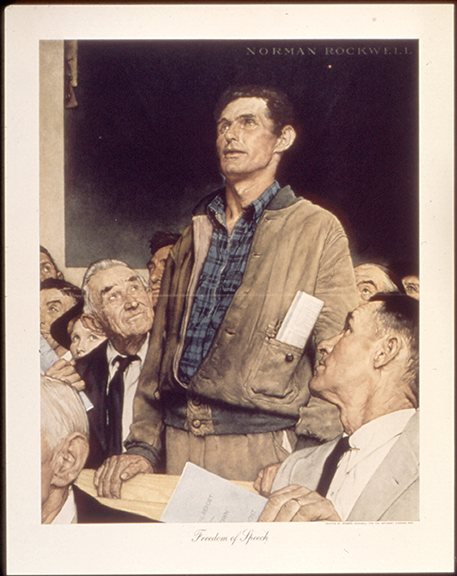 Q: Donald Trump says the press is the “enemy of the people.” How unusual is that?
Q: Donald Trump says the press is the “enemy of the people.” How unusual is that?
A: It is the first time anything like that idea has come from an American president. Historically, the phrase “enemy of the people” is employed by dictators presiding over totalitarian states, such as Joseph Stalin in Russia or Mao Zedong in China. It is also the title of an Henrik Ibsen play, but the central figure is a doctor who is concerned about water pollution at a local resort that is an economic mainstay of a small town.
Richard Nixon had an “enemies list” with many journalists prominently among them, but he never considered calling the media his own personal enemy in public. Trump says things that other presidents would never have dreamed of saying. He is an extremely unusual figure for this position.
Q: How much is this “media-is-the-enemy” idea in tune with American public opinion?
A: Only 29% of Americans are “very angry” with the media, while another 19% are somewhat angry, according to a February 2017 Rasmussen poll. This is a far cry from “enemy” status. A previous poll, in Sept. 2016, found confidence in the news media at about 32 percent, having fallen from 55% in 1999.
But most polls just lump “the media” into one category. One of the few polls that separated different types of media, Morning Consult, found that ABC news was considered credible by 67% of people and Breitbart and InfoWars were considered credible by less than 20% of people, about the same number that trust The Onion.
So, in reality, very few Americans think the media is the enemy, and the vast majority see this as just more hate speech coming out of the White House.
Q: Hate speech?
A: When a president labels some group as “the enemy,” he is saying that giving them any help is treason and fighting them is the patriotic thing to do. But the news media in general is protected by the First Amendment of the US Constitution, so the claim is inherently contradictory. In fact, there is no logical reason that Donald Trump is calling the press “the enemy.” He is simply picking on a convenient group and inventing reasons to ask you to hate them. Using hate speech to acquire political power is an old tactic, but a dangerous one, as Southern politicians found out in the 1950s and 60s.
Its important to remember that hate speech always precedes hateful action. Dur Sturmer and The Eternal Jew in Germany in the 1930s were used to justify the Holocaust; Radio Rwanda and Kangura newspaper were used to justify the Rwandan Massacres of the 1990s; Television programs describing Croatian complicity with Nazis in WWII were broadcast in the 1990s to fuel hatred against Croats in Serbia… there is a long list.
Q: Is it legal for the White House to bar certain members of the press from its press conferences?
A: Yes, legal, but certainly unwise. The executive branch is usually responsible for many of its procedures with the press, and there have been some problems in the past (although nothing like this). The White House press office has been selective in the past about who the president talked with in private and somewhat selective about who got called on for questions during press conferences. Traditionally the first questions went to the wire services, then the major newspapers. No administration has ever barred a news organization on ideological grounds before. Until the Trump administration, it would have been unthinkable, and for a very obvious reason: deliberately insulting people who may or may not disagree with you politically is a sure sign of a weak mind and a poor moral posture.
As the Society of Professional Journalists says, a free press means all the press.

